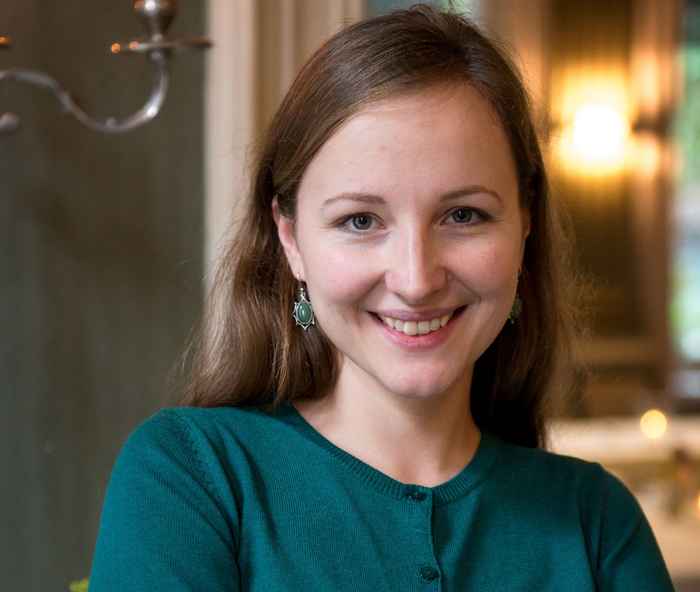‘The war has had a profound effect on me’
1 April 2022

Olga Burlyuk is a scholar from Ukraine and studies Ukraine within an international context. She lives in Brussels and joined the University of Amsterdam in January. ‘At that time we were still in lockdown, so it was only in February that I could start meeting my colleagues. And then the war started. Now suddenly so many colleagues reach out to me, while I did not have the opportunity yet to meet them. It is paradoxical that I introduce my work in this article, and not over coffee with them.’
‘I have become the subject and the analyst’
‘The war has had a profound impact on me, like on every Ukrainian. We now speak of the before and the after, the cut that was made on the 24th of February. When I heard the war had started I first, of course, worried about my family and friends. Is everyone safe? Can they flee in time? But I also wondered what to do myself. Do I continue with my teaching scheduled for that same morning?’
‘The relations between Ukraine and Russia, between Ukraine and the EU, and between the EU and Russia, are precisely the subject of my research. But I am also personally invested now, I have become both the subject and the analyst. And I am part of the Ukrainian diaspora in Brussels that immediately mobilized to help with political pressure and finding clothes, accommodation and jobs for refugees. It is very difficult to decide what to prioritise and to do all equally well.’
I studied democratic innovations in Ukraine. That work is now obsolete
‘Some of my work has become obsolete because of the war. For example, in the months before the war, I worked on a project on democratic innovations in non-Western democracies. I was the expert in charge of Ukraine. I was studying the coolest things happening in terms of citizen participation and democratic innovation to see what and how the West could learn from Ukraine. And then the war started, and I had to drop out from this project. How can I now sit down and cold-heartedly write about my research in the past tense, when the context has changed so dramatically?’
Western audiences do not fully understand the scale of the threat
‘The media attention for the war is unparalleled. But I don’t think that Western audiences fully understand the scale of the threat. I still see how the war is considered an external problem. There is not enough understanding of how this is also an attack on the West and could spill over. It could poison life for everyone for a long time to come. Remember that Ukraine is about as far from the Netherlands as Rome is from Amsterdam.’
‘In Eastern Europe, people do understand and feel the threat. I have friends in Poland, Czechia, Estonia, Lithuania who all lost their sleep fearing they are next and no international agreement will protect them. And so are their governments. They have always warned the West against “doing business” with Russia, knowing this was not just business but geopolitics and the sponsoring of a dictatorship. It has now been proven that Russia is a threat, but this does not fit Western analytical models that assume some kind of rational behaviour.’
For Ukraine surrendering equals death
‘The response of the European Union is overwhelming. It is much more than anybody expected, Russia included. The degree of unity, the level of solidarity and the speed with which decisions are taken are unprecedented.’
‘But the war has also been miscalculated and misinterpreted. The first days of the war, Russia announced it would take Ukraine in just 72 hours. And everybody feared that as possible. Now more than a month has passed, and not only did Russia not succeed, the resistance of Ukraine surprised the Western world. There was an (mis)understanding that Ukrainians would have to surrender when Russia threatened with nuclear bombs. But surrendering would equal death, the end of the Ukrainian state and Ukrainian people. With the threat of a nuclear bomb, you at least stand a chance the bomb will not be dropped.’
Russia is fighting for the past, Ukraine is fighting for the future
‘The only way this war can end with a win for Russia, is when there is no longer an Ukraine left. Just look at what is happening in the Ukrainian cities that have been fully occupied. They are packing tens of thousands of people into busses and deporting them to Russia, and nobody knows where they went. People who are still in the cities under siege have no food, electricity and water, and are being starved. So Ukrainians know what is awaiting the rest of them should Russia succeed. Two phrases illustrate the situation well. One is, “without Russia in this war, there would be no war; and without Ukraine in this war, there would be no Ukraine”. And the other one is: “Russia is fighting for the past, and Ukraine is fighting for the future”. Let’s hope the future wins.’